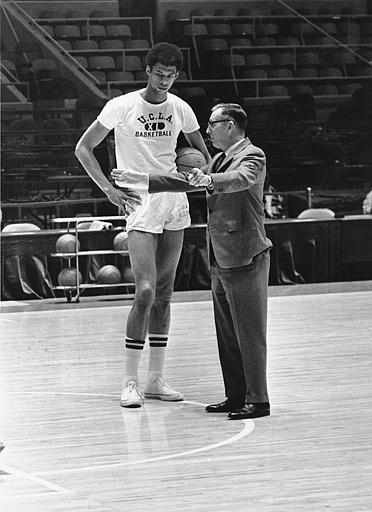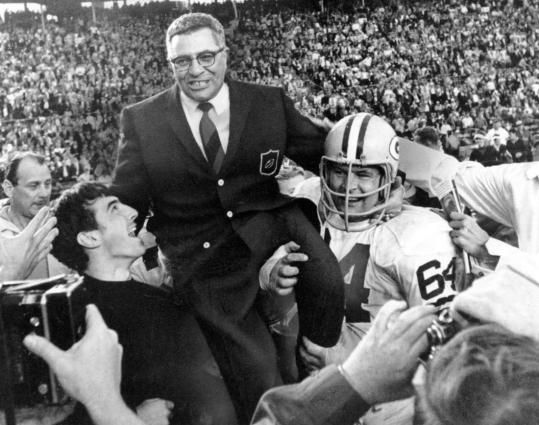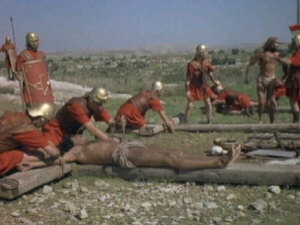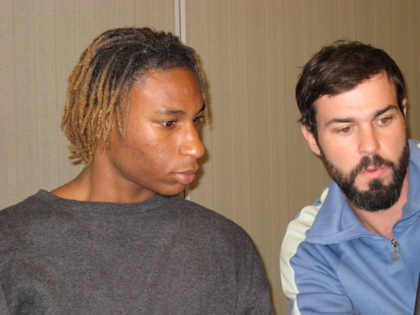|
|
What is a Coach?
A sports coach will make you run more laps than you feel like. A sports coach pushes an athlete to achieve optimum performance, provides support when the athlete is exhausted, and teaches the athlete to execute plays that the competition does not anticipate. To maximize performance, the coach will make sure the athlete gets in shape before the season begins, knows the rules of the game and the team playbook, and practices. Someone has said, "Stretching is necessary to have a successful practice. Not stretching can be dangerous and unhealthy." A coach makes the athlete stretch. A sports coach will tell it like it is. The role of the Business Coach is to coach business owners to improve their business through guidance, support and encouragement. They help the owners of small and medium sized businesses
with their sales, marketing, management, team building and so much more. Just like a sporting coach, your Business Coach will make you focus on the game.* A Bible Coach makes you read the Bible more than you feel like. The Christian Scriptures teach that life is like a race that we need to train for, run hard, and win. A Bible Coach pushes you in the race set before you (Hebrews 12:1; 2 Timothy 4:7), helping you apply what you read, building personal habits, overcoming defects of character that keep you from winning the race and being awarded an imperishable crown (1
Corinthians 9:24-25). |
How Does Coaching Work?
A coach tells people what they do not want to hear and shows them what they do not want to see so that they can be all that they can be. |
-- Vince Lombardi |
If you don't want to be a star football player, don't hire Vince Lombardi to be your coach. If you don't want to be a star basketball player, don't hire John Wooden to be your coach. If you want to be an extraordinary Christian, hire a coach who can help you become an extraordinary Christian. Then get ready for an extraordinary journey. Because neither you nor your coach knows the exact route, and neither of us know exactly what kind of person you'll be when you get there. |
|
|
|
|
Nevertheless, we're going to start on the journey. We're going to follow in the footsteps of Christ. Along the way you may be put to death by the sociopathic soldiers of a tyrannical government. But we'll eventually reach the New Jerusalem, the "City of God." Your coach is on the same journey. We may split up for a time, and then be rejoined when our paths cross again. Or we may not see each other until we reach The City on different paths. You coach will help you realize which paths you should take, and which paths are dead-ends. You coach empowers you, but does not make you dependent on the coach.
|
|
What is Coaching?
See what other coaches say:
Here are some coaches, randomly selected. Note the services they provide, the goals they claim to achieve, and the prices they charge. We believe our program is superior if you want to become an extraordinary American, an extraordinary Christian, and an extraordinary human being.
The quality of a person's life is in direct proportion to their commitment to excellence, regardless of their chosen field of endeavor Vince Lombardi
|
|
|
If you read some of the definitions of modern "coaching" in the box on the right, you'll discover that they're very different from Vince Lombardi, and unlike the kind of coaching we offer here.
If you're on a professional football team, and the Coach tells you to run with the ball downfield as fast as you can, and you go the opposite direction, your team won't get points for a touchdown, the other team will get points, and you will probably get kicked off the team (if you were deliberately ignoring the Coach's instructions).
If you're on a professional football team and you insist on using a baseball, basketball, or tennis ball, again, you'll probably get kicked off the team.
So the first question is, Which Sport Are You Playing? Which Race Are You Running? Who Makes the Rules?
Most modern "life coaches" believe "the client has all the answers within." If you're running down the field in the wrong direction, most modern
coaches believe they must be "non-judgmental." As Ludwig von Mises (arguably the greatest economist in the 20th century) would put it, the economic coach won't tell you what you ought to to (morally speaking), but only the pragmatic results of your actions: If you engage in policy X, you will achieve result Y. No judgment is made as to the morality or sinfulness of policy X.
Our coaching program begins with the construction of a Biblical Worldview. All the options of life are viewed through this worldview. In order to develop this worldview, we prescribe a training course in which the athlete reads the five most important works in the history of Christian Civilization. The goal of this program is to develop a Biblical Worldview.
After this program is completed, we
embark on a program of personal coaching. During the time you study the training materials and develop a Biblical Worldview, you will also learn how to be coached. This is a discipline in itself.
An Example of Secular Coaching
Christians can learn many things from non-Christian coaches. There are also many ideas and practices which are toxic. Here are the opening paragraphs from an article in The New Yorker, April 22, 2002 v78 i9 p114(11) entitled, "The Better Boss: How Marshall Goldsmith Reforms Executives, by Larissa MacFarquhar.
Abstract: Goldsmith's career as an executive coach who trains executives to be respectful of others to help in employee retention and formation of strategy. His techniques and some case studies are described.Marshall Goldsmith's official job description is "executive coach": he trains executives to behave decently in the office, by subjecting them to a brutal regimen. First, he solicits "360° feedback" -- he asks their colleagues and sometimes their families, too,
for comprehensive assessments of their strengths and defects -- and he confronts them with what everybody really thinks. Then he makes them apologize and ask for help in getting better. It's a simple method -- "I don't think anybody's going to say I'm guilty of excessive subtlety," he says -- but it works. It had better work. If it doesn't, the client gets his money back.Goldsmith won't take on a client who doesn't want to change -- someone who, as he puts it, has not a skill problem but a don't-give-a-shit problem -- but, short of that, the more obnoxious the better. "My favorite case study was in the 0.1 percentile for treating people with respect," he says. "That means that there were over a thousand people in that company and this person came in dead last. This person would be in an elevator and someone would come up and say, 'Hey, how's it going?,' and he wouldn't even respond. He was hardworking and brilliant; he didn't lie, cheat, or steal. He was
just a complete jerk. The case was considered hopeless, but in one year he got up to 53.7 per cent.
"You know how I helped the guy to change? I asked him, 'How do you treat people at home?' He said, 'Oh, I'm totally different at home.' I said, 'Let's call your wife and kids.' What did his wife say? 'You're a jerk.' Called the kids. 'Jerk.' 'Jerk.' So I said, 'Look, I can't help you make money, you're already making more than God, but do you want to have a funeral that no one attends? Because that's where this train is headed."
When Goldsmith started executive coaching, in the early eighties, he was a pioneer. Coaching really came into its own as an industry about five or six years ago, when employee retention became a serious problem. Prosperous baby boomers were retiring early, and members of Generation X were looking for variety and fulfillment rather than security. Human-resources departments, meanwhile, were calculating the cost of losing an important employee
(between one and two times the employee's annual salary and benefits, according to one estimate), and had discovered that one of the two main reasons that people left jobs was that they hated their boss (the other being the general failure of the company). Clearly, it was foolish to lose talent for no better reason than that a vice-president appeared to his subordinates to be insufficiently interested in what they had to say. Moreover, a bad attitude on the part of senior management was held to be detrimental not only to retaining employees but also to the formation of strategy. The old-fashioned leader, with his bulldozer personality and his single-minded certainties, was thought to be too arrogant to lower his ear to the ground and listen for changes coming. Thus, the executive coach.
Coaching being still in its chaotic, juvenile phase, there are, as yet, no licensing requirements of any kind. Anyone can call himself an executive coach, and thousands do. Schools are springing up
everywhere: Coach Universe and Coach U conduct classes by phone; CoachVille.com trains coaches for a seventy-nine-dollar lifetime-membership fee. For this reason, first-to-market coaches like Goldsmith, who already have solid reputations and have received notices in the business press (he was listed as one of five top coaches by Forbes, and in the top ten by the Wall Street Journal), are flourishing. Goldsmith's current clients include ChevronTexaco, Motorola, Thomson, and Pitney Bowes. Some executives remain suspicious of coaching,
thinking of it as a reproach or as enforced psychotherapy, but more often these days the offer of a coach is taken as a compliment -- a sign, since the service is expensive, that a person is being groomed for significant promotion.
One of Goldsmith's clients is an executive in a large corporation. He is high-ranking -- only a step or two from the top. None of Goldsmith's clients are far from the top -- his services are too expensive to waste on mid-level managers. (He won't say how much he charges, but it is reported to be in the high five figures per client per year, which makes him one of the best-paid coaches in the field.) On a recent visit to the executive's office, Goldsmith ran into his client in the hallway, where the two of them were spotted by a little white-haired man wearing a red bow tie.
"Who's getting their head shrunk today?" asked the white-haired man in a jovial tone. The executive gave him a pained smile.
The executive was in his early forties and
wore an open-necked white shirt. He had the genial, Saturday air of a man with a beer, making a seamless transition from fraternity to barbecue -- an air that, by all accounts, had served him well in his work. But, at the same time, there was a tense wariness about him. The people in marketing who worked under him thought he was terrific, but his peers were tired of what they felt were his incessant competitive put-downs, and people in sales felt that he had failed, as Goldsmith primly put it, to treat them like customers. The executive had to stop being so territorial, the C.E.O. decided. Goldsmith was called in and signed up for a year.
The Commitments of Vine & Fig Tree Coaches
I want to be your personal coach.
I want to inspire you, empower you, guide you, help you find answers to your questions, nag you, encourage you, and be a tool in your transformation into a Christian Anarchist.
I promise to be patient with you, no matter how frustrated you get.
I promise not to compel you or try to force you to believe everything I believe, in exactly the same way I believe it.
I just want to be a part of your journey. I've been on a similar journey. I've gotten frustrated with people who told me I should not become an anarchist. I've struggled to believe the Bible rather than the accredited and socially-accepted media figures in the world around me.
I've cut a path through the forest. I'm still cutting. Let me join you as we re-trace the steps I've traveled. At some point God may call you to leave the path I've been cutting so you can cut another path. It's a big forest. We need lots of paths. Eventually you and I will make it to
the other side: the City of God.
* Paul Fagan







